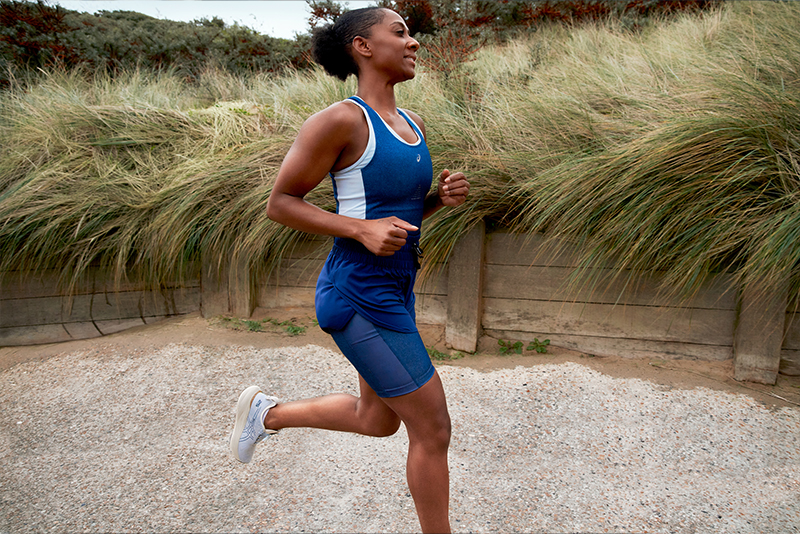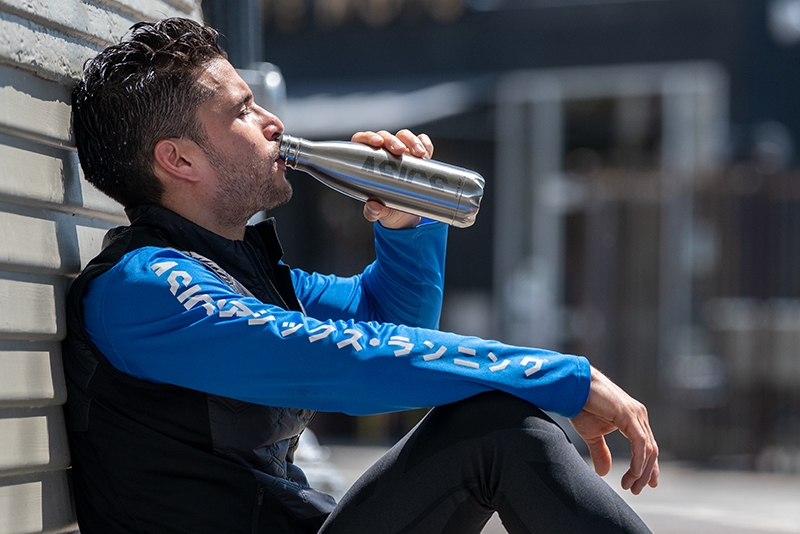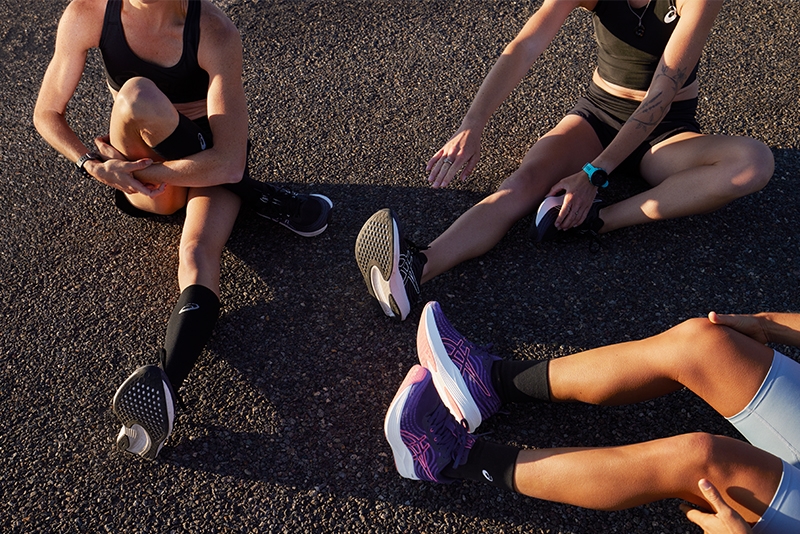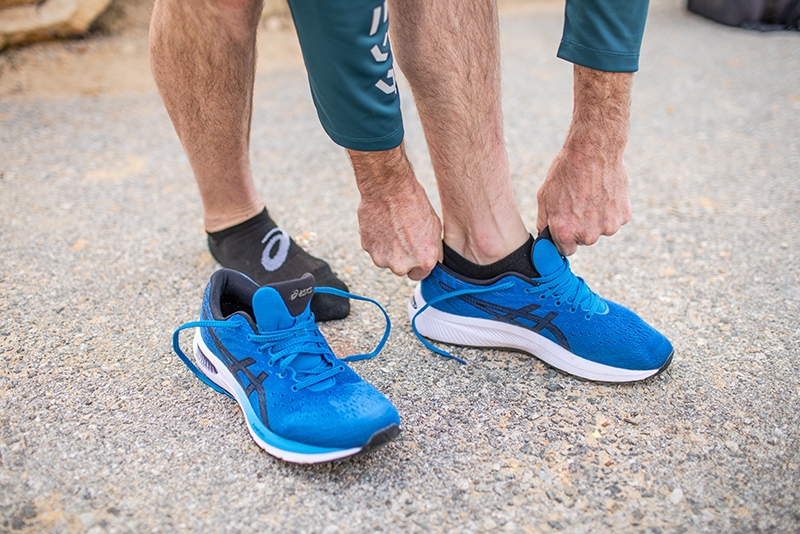Although running is a great way to improve your quality of health and life, most runners will also tell you running can also be quite painful, especially after a hard run.
In this article, we’ll cover some tips and tricks you will want to follow to avoid pain after your run. This post will show you five of the most important tips for less pain and a better recovery after a long run.
Take Some Time to Cool Down
When you finish your run, the first thing that you need to do is cool down. The purpose of cooling down after a run is to slowly bring down your heart rate and breathing rate back to normal levels. This allows the blood flow to return back to normal circulation and for your muscles and joints to be eased back into their normal positions.
Cool down routines typically include walking or slow jogging for about 5-10 minutes after finishing your run. Sprinting around without a plan, or doing strenuous exercises like sit-ups and press ups will not help your body recover from your run; they may actually put you at more risk of injury. So when you've completed your workout, be sure to stretch, and give yourself at least 15 minutes before hopping in the shower.

Rehydrate
During a workout, you lose fluid, electrolytes, and nutrients through your sweat. Replacing these essentials during and after exercise is important because it keeps your body functioning and helps you avoid cramps. But the process doesn't stop when you're done running — at least an hour after a run, you should continue to replenish lost fluids and electrolytes and help your muscles recover.

Stretch
When you run, your muscles contract so they can meet the kinematic demands of the activity. The act of contracting and relaxing causes tiny tears in the muscle fiber, which is repaired and rebuilt when you rest and allow the muscle to heal. If you don't stretch after running, these micro-tears don't heal as well and your muscles remain tight.
Stretching also helps reduce soreness that may be caused by microscopic tears in the muscle fibers from running. It can help relieve cramping, improve blood flow to muscles, and help break down lactic acid buildup that occurs during exercise. Stretching also helps relieve built-up tension in tight muscles.
Stretch for at least 30 seconds. If you hold the stretch for less than 30 seconds, you are not giving the muscle enough time for the fibers within the muscle to elongate and relax, which is what you want them to do during a stretch.
Hold each stretch until you feel a gentle pull on the muscle or tendon being stretched, rather than pain or discomfort. If you feel pain or discomfort, that means that you have stretched past your comfort zone and are pulling on connective tissue rather than muscle.
Do not bounce during the stretch. Doing so will increase the risk of injury.
Eat Properly
In order to recover after your run, you need to eat properly. Try eating foods that are high in carbohydrates. This is the main source of energy for your body and will help to replenish the glycogen stores in your body.
It is important not to drink anything with caffeine in it, as this may lead to dehydration and make you feel tired. Drinking water will rehydrate you while preventing any symptoms of dehydration, such as headaches or fatigue.
Think about eating high-protein foods after a workout too. Protein is necessary for muscle growth and repair, so consuming these foods can help you recover faster from your runs and tone and build muscle.

Rest and Recover
There are hundreds of running tips out there, but the most important tip is to rest and recover. Running is a form of stress on the body that triggers damage and inflammation. When you run, there is damage to your muscle and connective tissue from repetitive use. This damage kicks off a cascade of events in the body that lead to inflammation and pain.
Trying to run through pain or injury increases the amount of time needed for recovery, because the pain signals increase the inflammatory response. It's best to allow your body to recover from training before ramping up for another hard session.
Research shows that sleeping is a critical component to achieving optimal recovery. The ideal amount of sleep for an adult is 7-8 hours. Some people are genetically predisposed to needing less sleep, but most adults need about 8 hours of sleep per night. The key is making sure you get quality sleep. This can be hard during the week if you have early morning training and a busy work schedule, but on the weekend, you should try to wake up naturally without an alarm clock, and get at least 8 hours of sleep.
One effective way to ensure you are getting the right amount of sleep is to set a regular bedtime routine. Try taking a warm shower before bed or listening to relaxing music. These techniques will help your body associate these activities with going to bed, which will help you fall asleep more quickly.
A solid night's rest not only gives your body a chance to recover after a long run, but helps you stay energized on the days leading up to and following your run.
Make Sure Your Running Shoes Are in Good Shape
Before you run, check your shoes for any visible damage. Look for cuts, tears, fraying fabric, and anything that could cause a blister. If you find any issues, it's probably time to buy new running shoes.
Running in worn or ill-fitting shoes can lead to all sorts of injuries, including shin splints and plantar fasciitis. Make sure that your running shoes are comfortable, well-cushioned, and have proper arch support.
After your run, make sure to give your feet the attention they deserve. Use a pumice stone or file to smooth rough spots on the bottoms of your feet; moisturizers or healing ointments can help with any sore spots and prevent blisters from forming; and compression socks can help get blood flowing back into your feet more quickly, and potentially speed up recovery time. Your feet will thank you.
Take Breaks to Recover From Runs
Runners are not born; they are built. Sometimes that process can take a painful amount of time and effort. Give yourself a break the day after you run if you need it. Rest well. Do the things that will help you recover from your training sessions.

